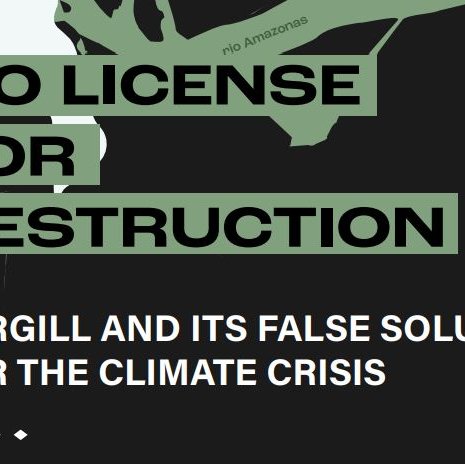Report "No license for destruction: Cargill and its false solutions for the climate crisis"

Terra de Direitos
"No license for destruction: Cargill and its false solutions for the climate crisis", November 2021
...In 2021, COP26 is taking place in Scotland, with the goal of finishing the set of rules that the Paris Agreement signed in 2015 is comprised of...
Measures and proposals presented by the countries have been showing alternatives that are not very efficient, and which, actually, contribute to maintaining means of production that have high rates of greenhouse gas emissions...This green cover-up or greenwashing has also been the companies’ current strategy of choice – including at COP26 – to maintain their activities at this moment of expressive debates concerning the environment and climate...
...[W]e present, in this study, the strategies used by Cargill, a transnational corporation that is present in Brazil’s northern region, more specifically in the cities of Santarém and Itaituba, in the state of Pará...
Cargill faces several denouncements made by social movements and civil society organizations regarding socio-environmental damages caused by its activities...
This study presents how Cargill uses the climate debate to conceal its activities, demonstrating what are the propaganda and institutional mechanisms (plans, projects, and others) it employs to construct a sustainable corporate image...
The idea of bioeconomy presented by Cargill is aimed at increasing productivity and profitability, without considering, however, the form of popular bioeconomy developed by local peoples and populations in the different regions covered by the company...
In the Amazon region, bioeconomy-based solutions supported by companies like Cargill and other agribusiness giants are not betting on a model that considers the form of bioeconomy promoted for centuries by indigenous peoples, quilombolas, and traditional populations, who have preserved forests over time...